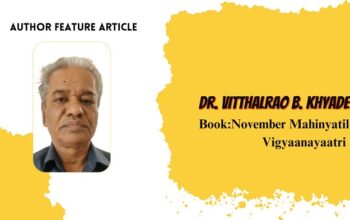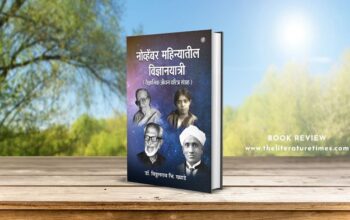Atharva Parkar, a debut novelist, blends mythology, crime, and emotion into cinematic narratives. Passionate about exploring the intersections of faith, fate, and fury, he brings detail and suspense to his storytelling. Eclipse of Redemption marks the beginning of his literary journey, promising many more immersive worlds ahead.
The Literature Times: What was the initial spark that inspired Eclipse of Redemption?
Atharva Parkar: The spark came from my fascination with how mythology, memory, and human morality intersect. I didn’t want to simply retell myths — I wanted to create a labyrinth where faith, fate, and betrayal collide in unexpected ways. The idea of embedding subtle hints that only reveal their full meaning later became the heart of the story.
The Literature Times: How did you balance modern crime elements with mythological undertones in the story?
Atharva Parkar: For me, crime and mythology are two sides of the same coin — both deal with power, truth, and consequences. The underworld of Rana Devraj Singh mirrors the mythic struggles hidden in the Sanskrit verses. I approached it like weaving two fabrics: the grit of noir crime and the timeless aura of mythology, letting them overlap and echo each other.
The Literature Times: Aarav’s journey is both personal and spiritual—was his character inspired by anyone in real life?
Atharva Parkar: Aarav carries pieces of me. His silence when faced with grief — standing at the window instead of reacting — comes from my own experience when I lost my father. His sense of duty and his quiet internal battles are very personal. At the same time, he represents anyone who is forced to confront forces larger than themselves.
The Literature Times: Why did you choose the Hoysala temples of Karnataka as a central backdrop?
Atharva Parkar: The Hoysala temples, especially Hoysaleswara, are living testaments to devotion, art, and forgotten stories. Their walls hold myths carved in stone, and I wanted to echo that — a story hidden in plain sight, waiting to be decoded. The temple became both a physical setting and a metaphor for secrets etched into history.
The Literature Times: How do you view the relationship between destiny and free will in your novel?
Atharva Parkar: I believe destiny sets the stage, but free will decides how you walk across it. In the novel, prophecies exist, but how characters respond to them defines their fates. Aarav is constantly pulled between whispers of destiny and the choices he makes in the moment. That tension drives the story forward.
The Literature Times: What challenges did you face while writing your debut book?
Atharva Parkar: The greatest challenge was trusting my style. I knew from the beginning that Eclipse of Redemption would confuse readers at first, because it’s meant to be solved, not consumed. Balancing my vision with the fear of how readers might react was difficult, but ultimately, I stayed true to the design.
The Literature Times: How do you ensure your writing remains both cinematic and emotionally resonant?
Atharva Parkar: I approach scenes like frames in a film — every silence, every glance, every flicker of light matters. At the same time, I infuse personal emotion into those moments. The cinematic quality comes from sharp imagery, but the resonance comes from truth — often drawn from my own life.
The Literature Times: What message or feeling do you hope readers carry with them after finishing the book?
Atharva Parkar: I want them to leave with more questions than answers. Confusion, suspicion, wonder — those emotions are deliberate. My hope is that readers realize truth is layered, and that sometimes the act of searching is more powerful than the clarity of finding.
The Literature Times: How much of yourself do you see reflected in the characters of Devansh and Aarav?
Atharva Parkar: Aarav is my spiritual and emotional side — contemplative, righteous, sometimes broken. Devansh represents innocence and the part of me still discovering the world. Together, they form a reflection of the bond I value most: brotherhood, loyalty, and the pain of losing someone too soon.
The Literature Times: Can readers expect a sequel, and if so, how will the “First Awakening” evolve into the next stage of the story?
Atharva Parkar: Yes, this is only the beginning of a much larger journey. The First Awakening sets the stage, introduces the prophecy, and scatters clues that will carry forward. In the sequel, the world expands — the jewels take on greater significance, the shlokas reveal deeper meanings, and the unseen forces shaping every event begin to surface. If the first book asked “What is happening?”, the next one asks “Why is it happening, and what price must be paid for the truth?” Readers can expect more intensity, more questions, and an even deeper descent into the mystery.



